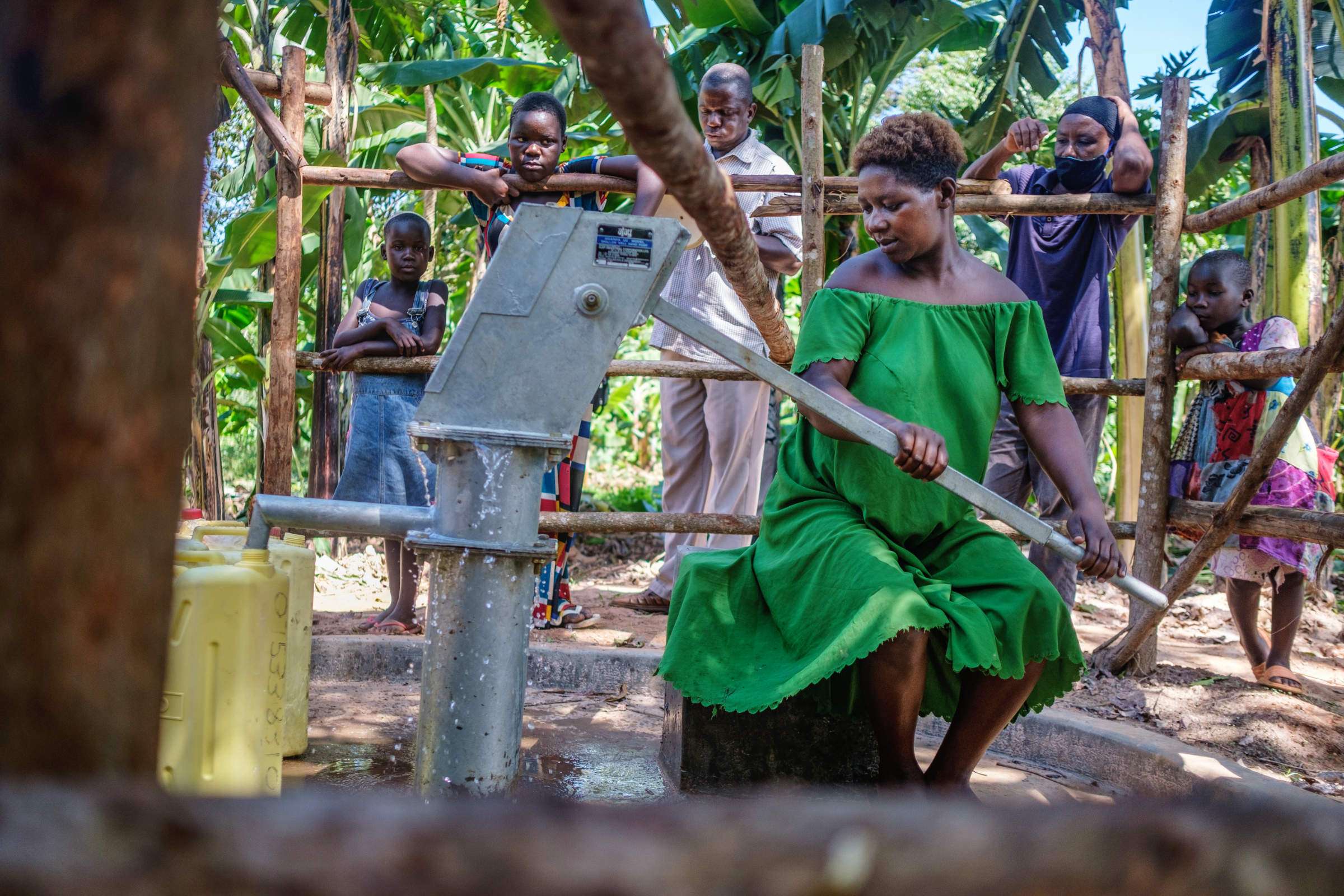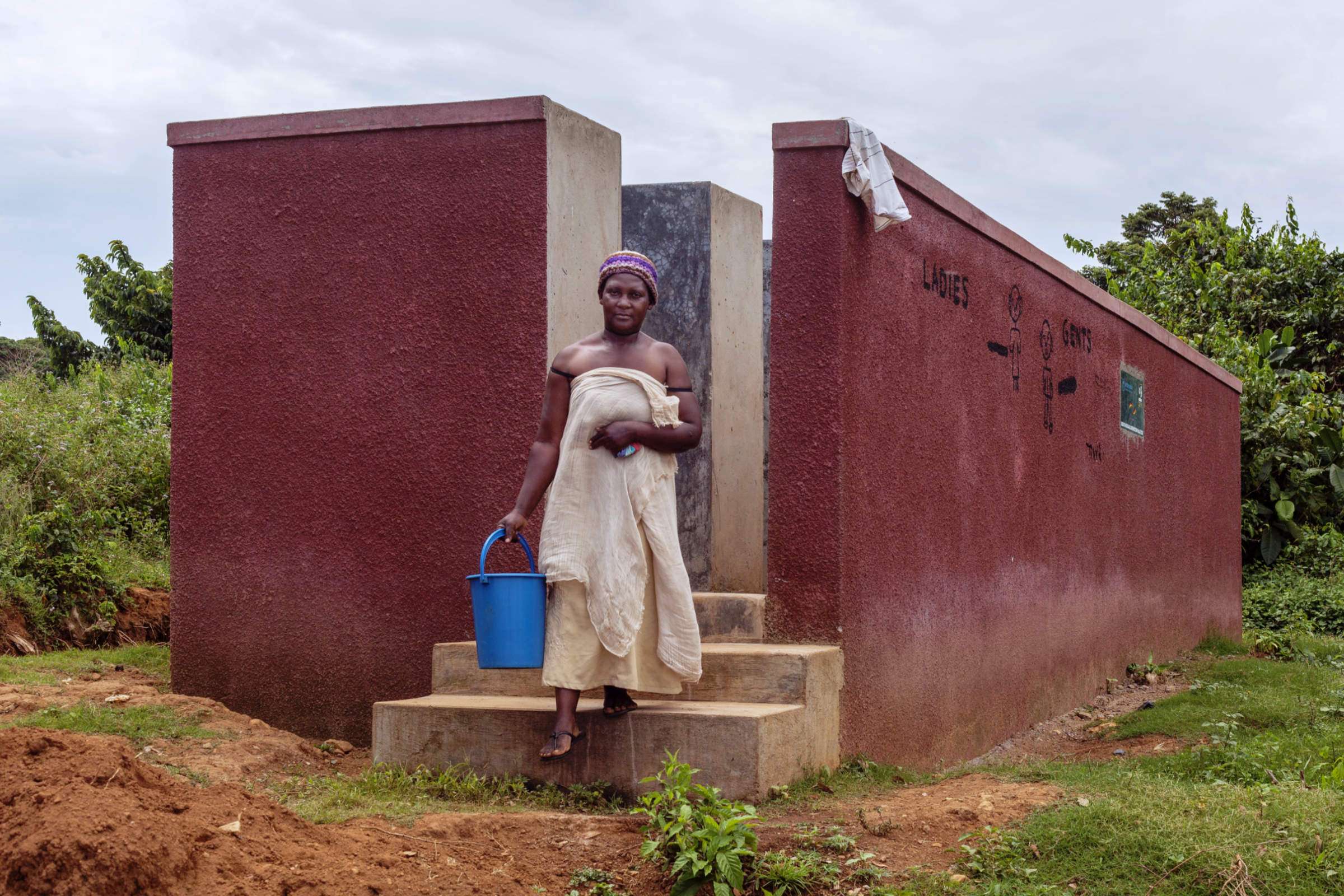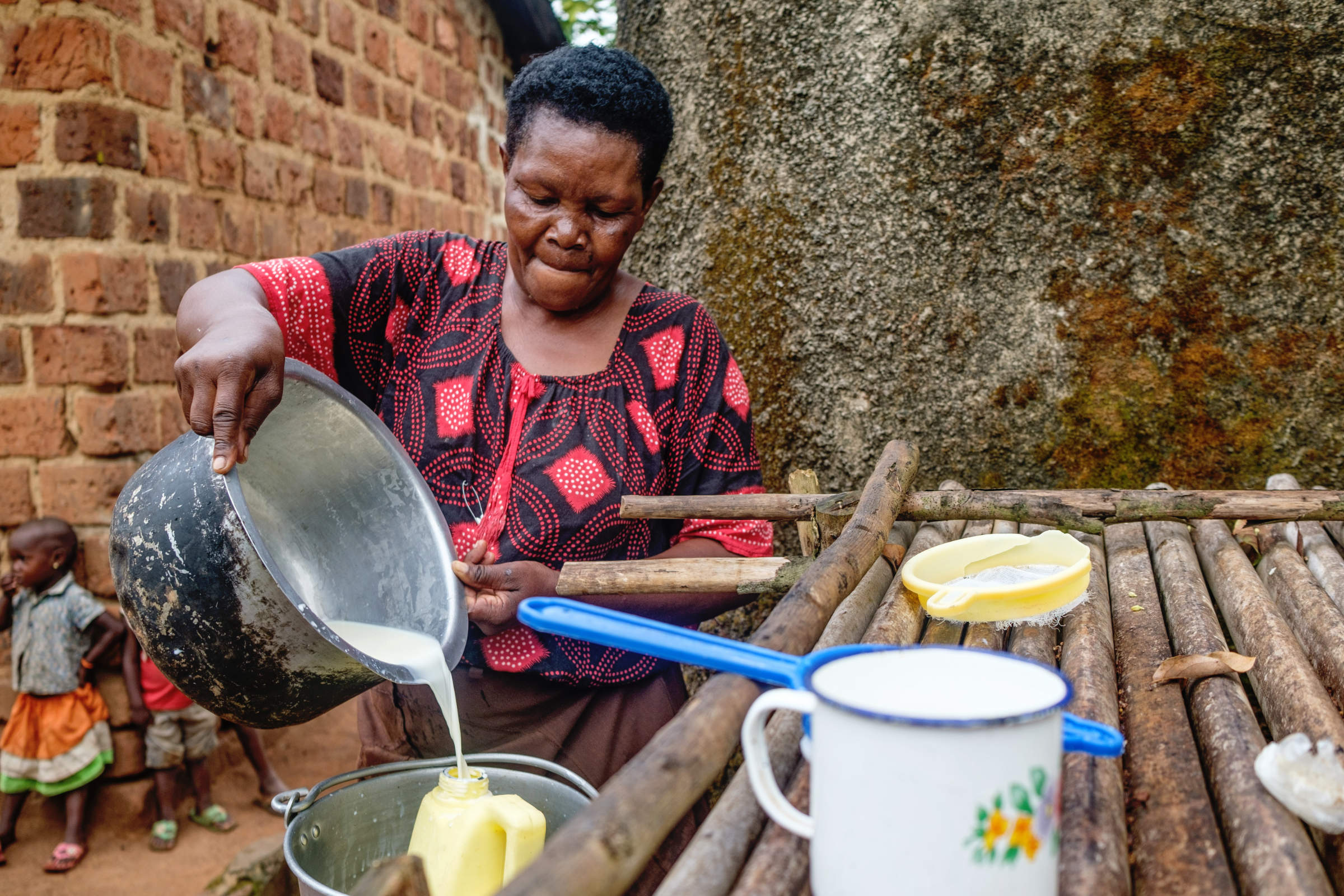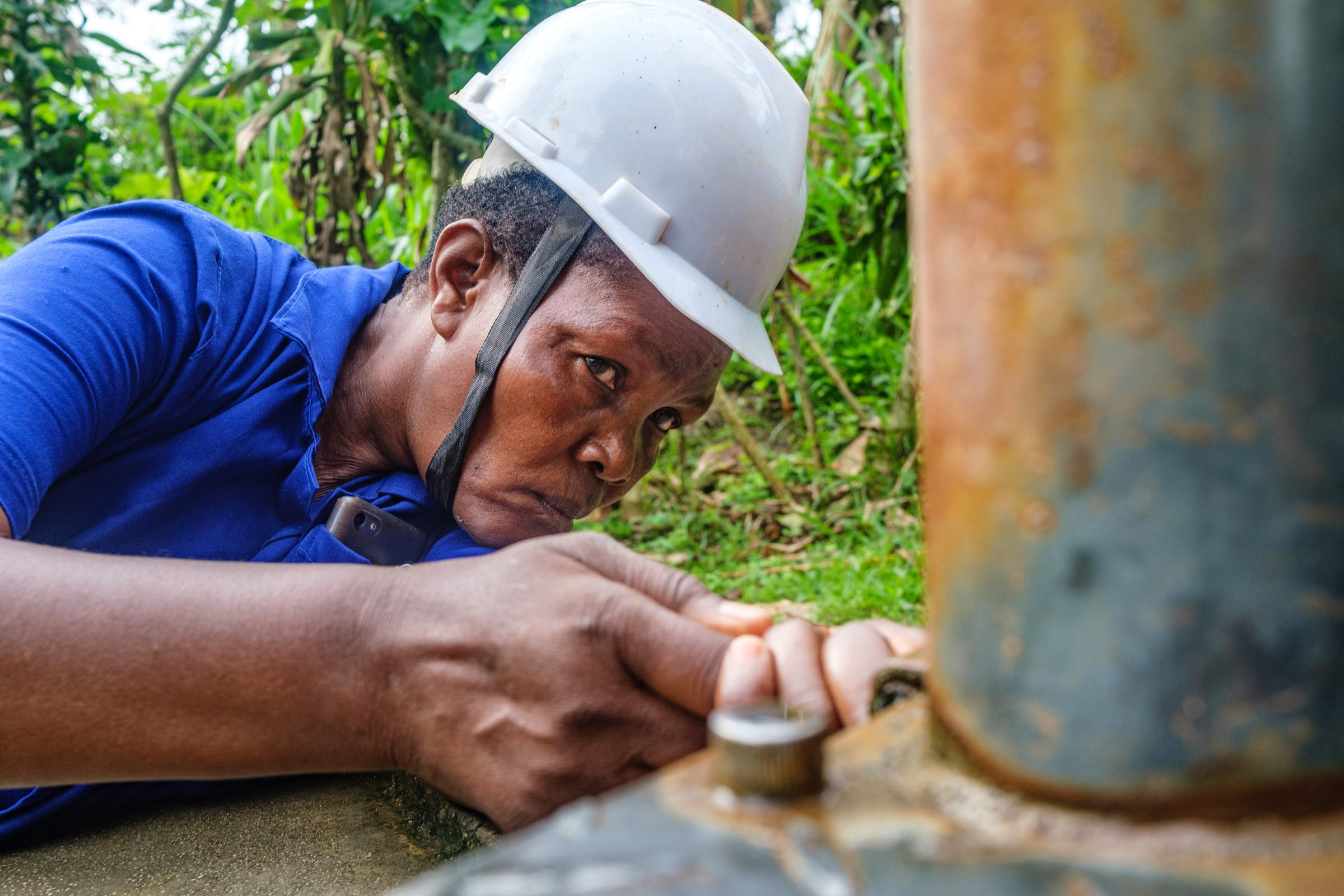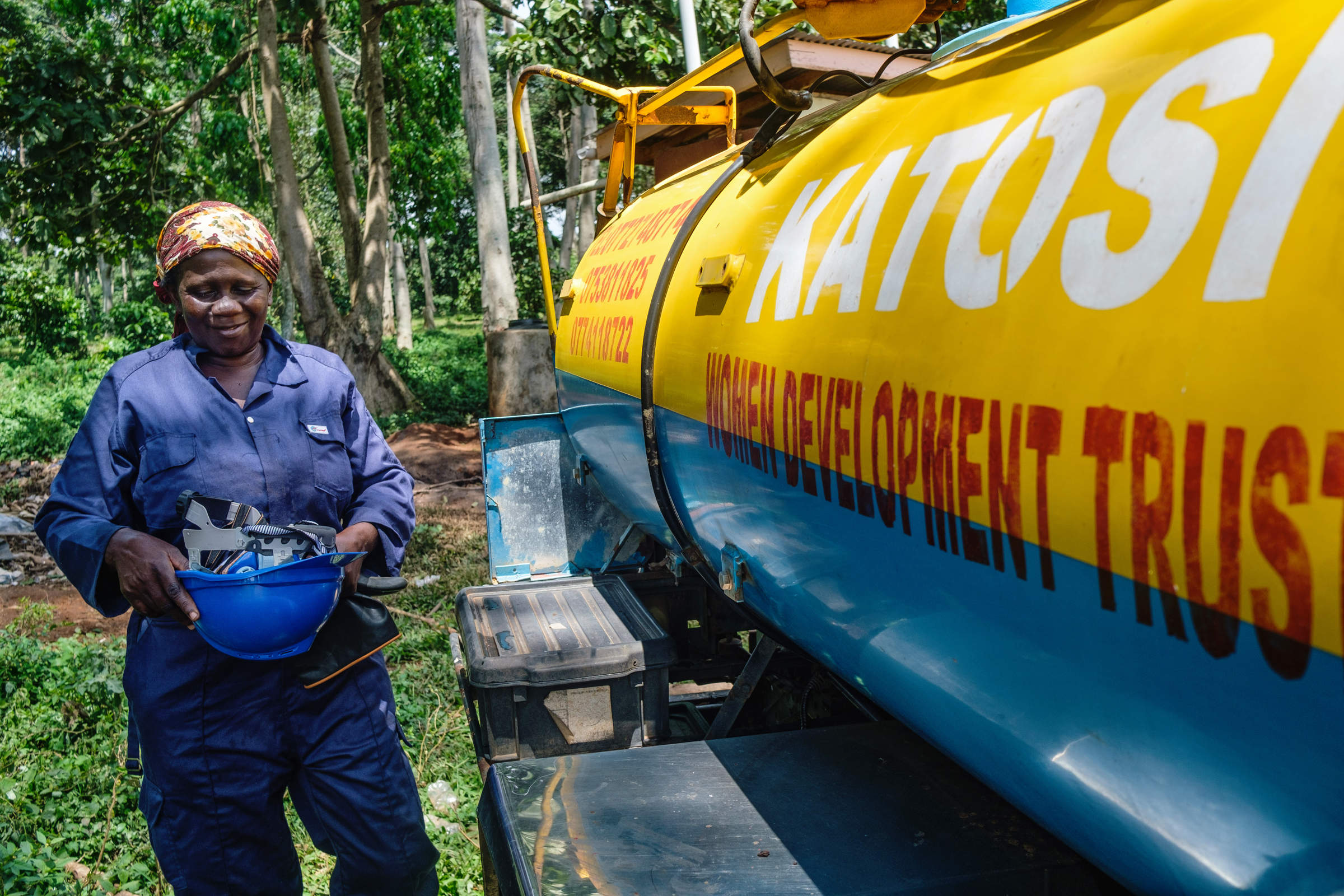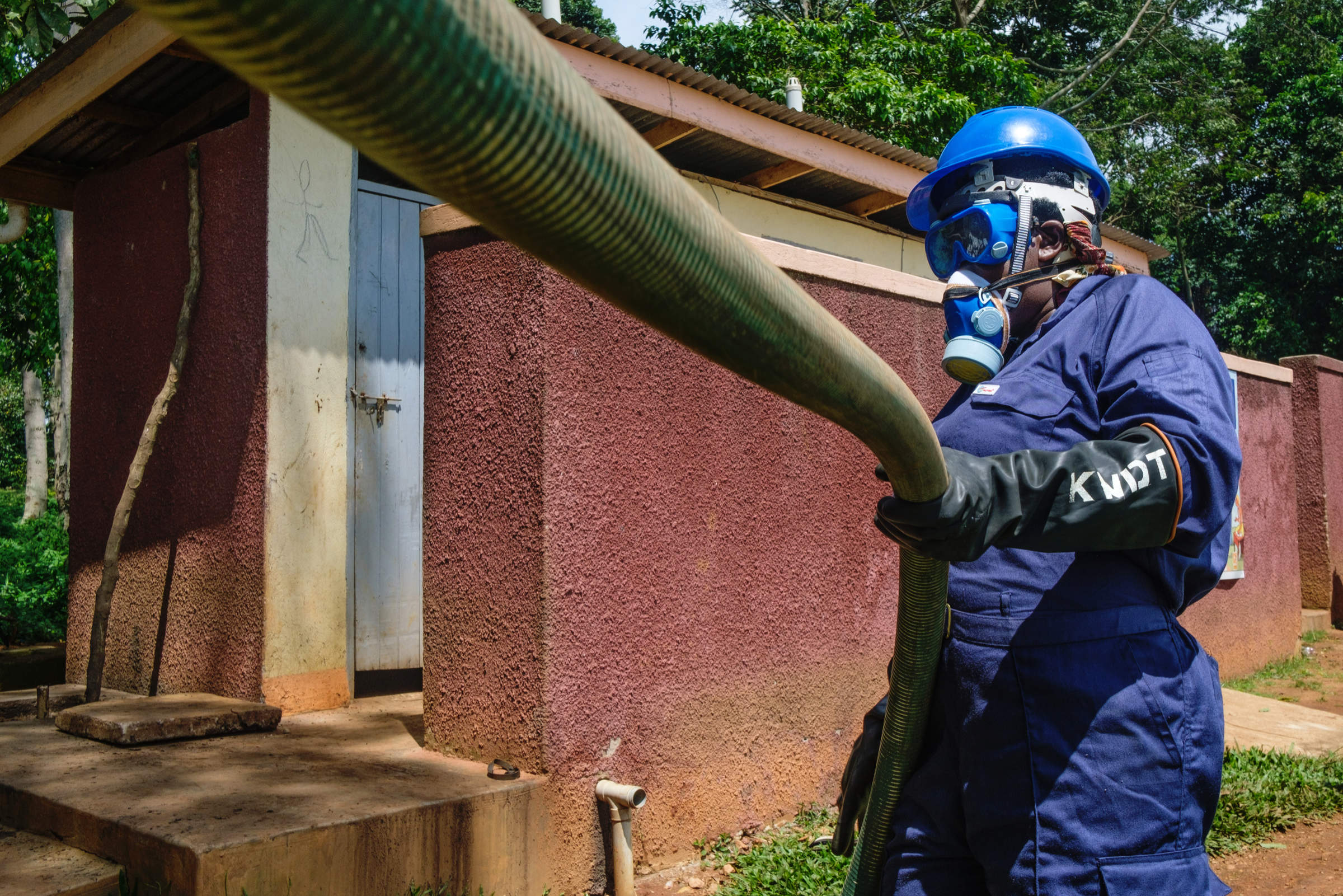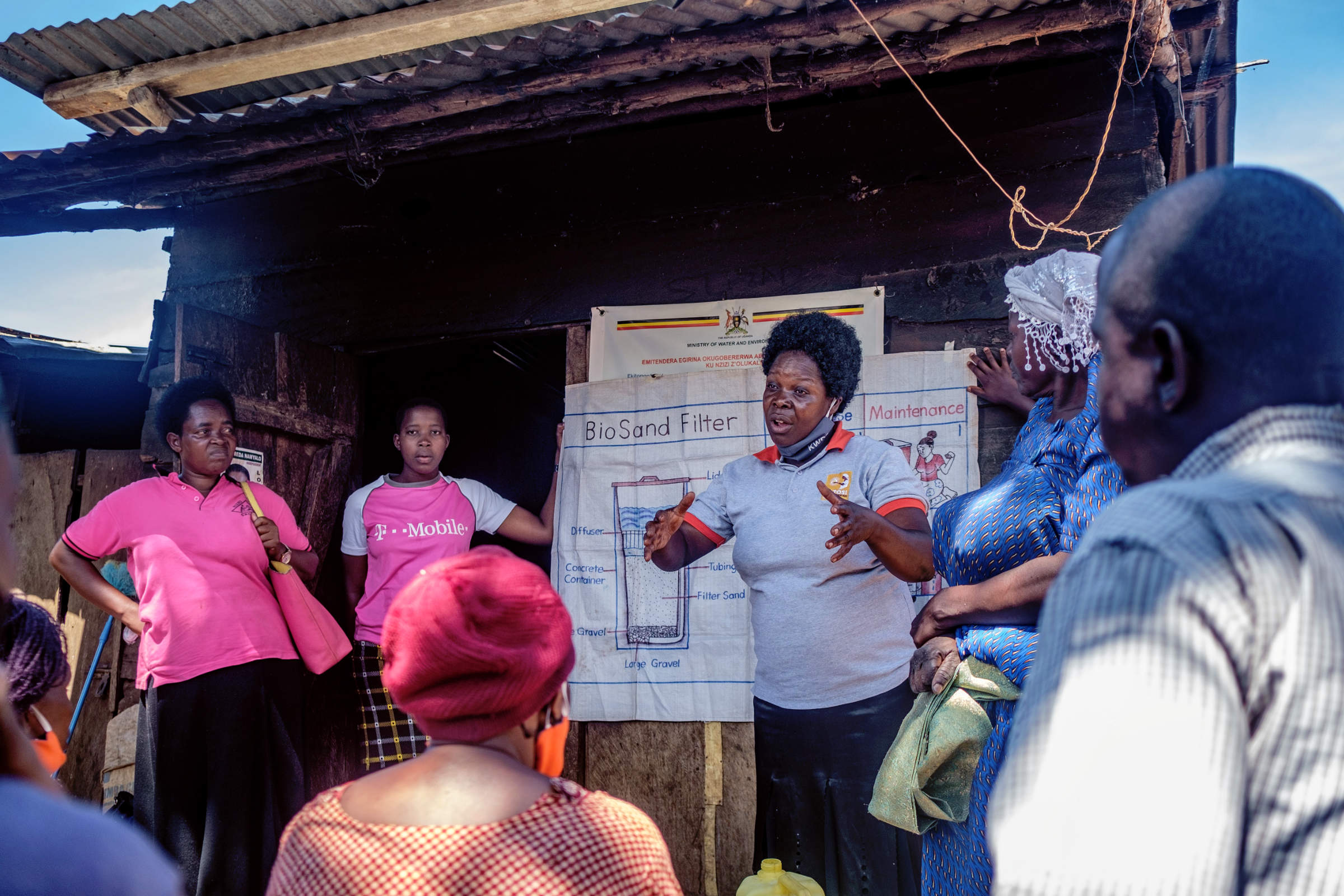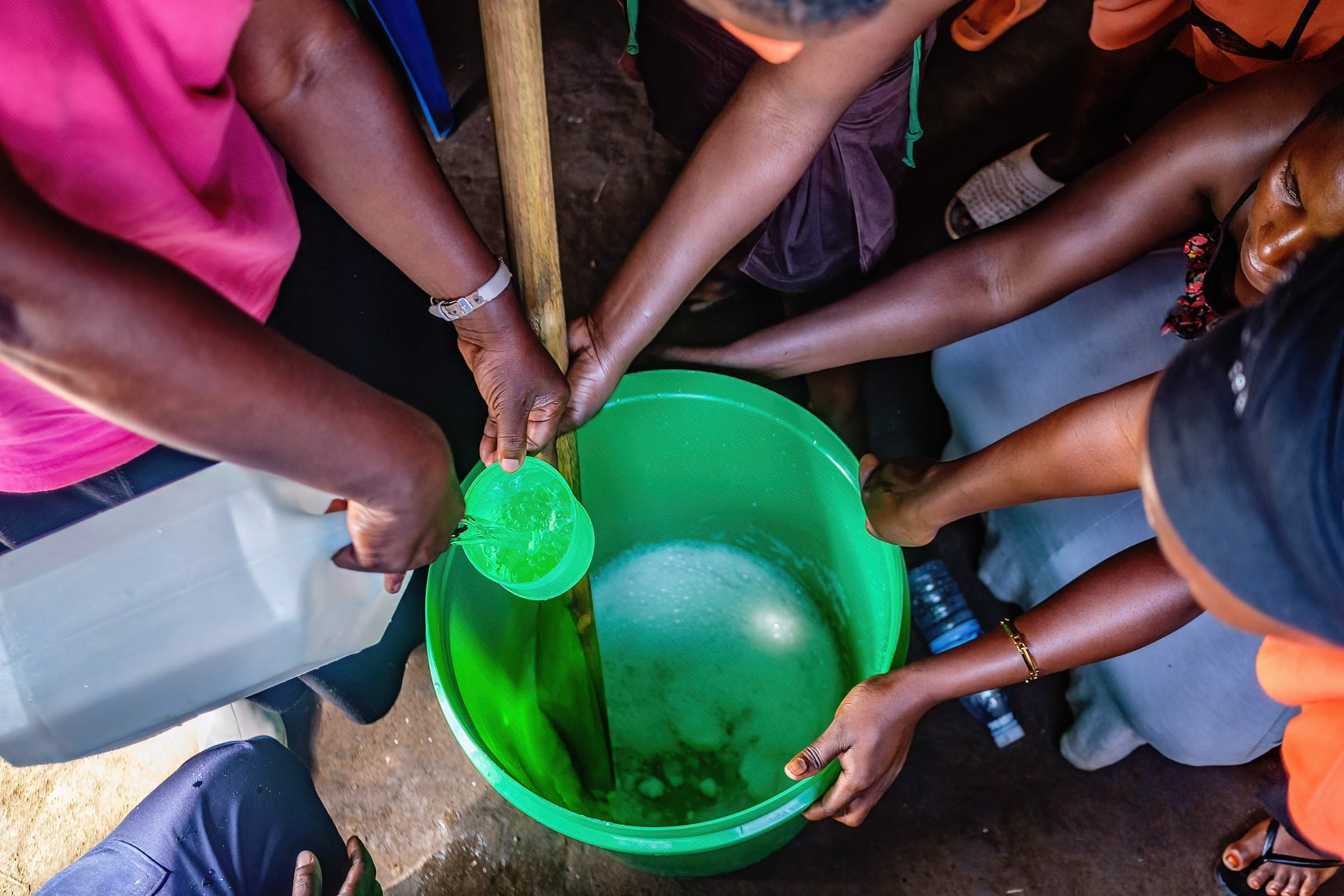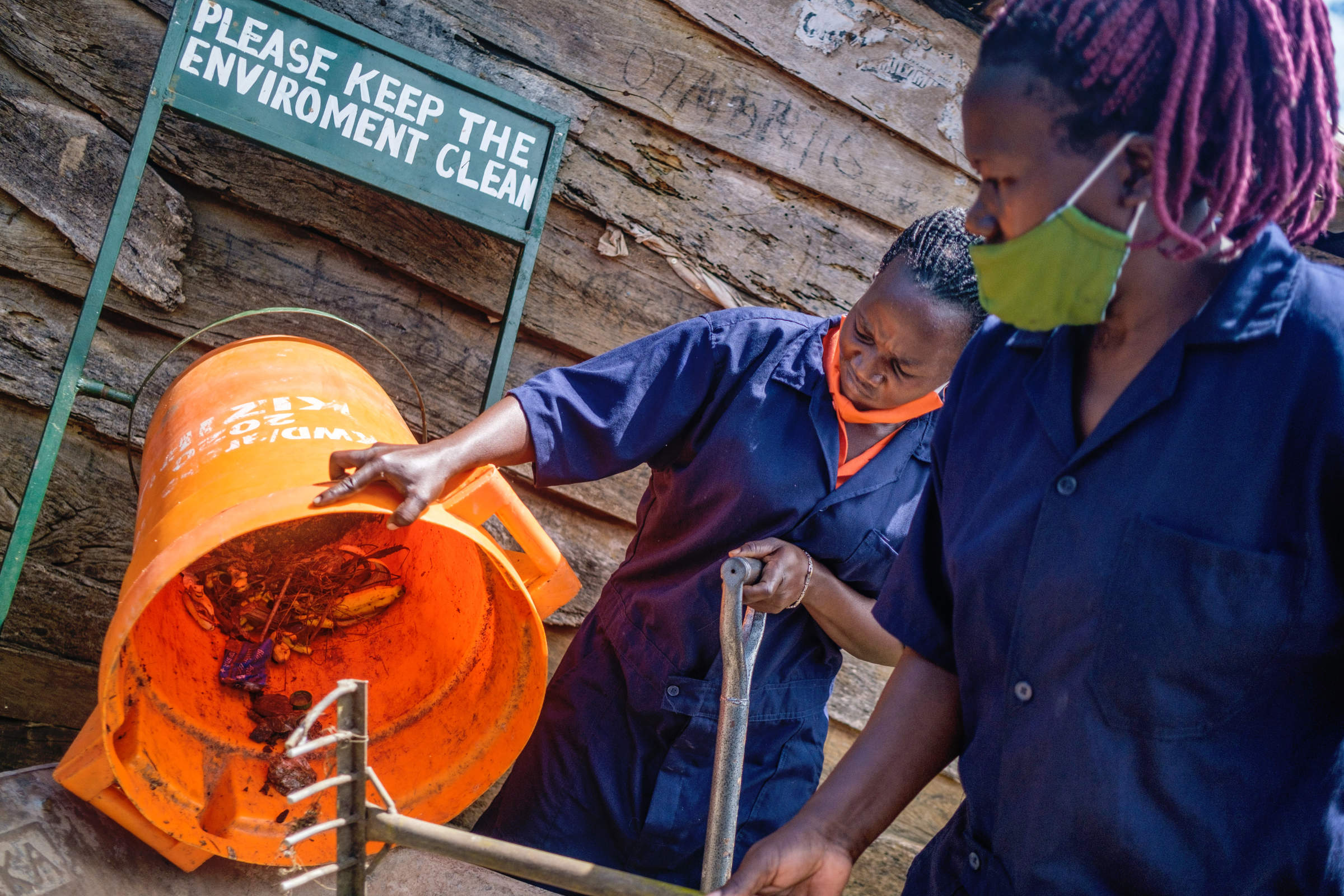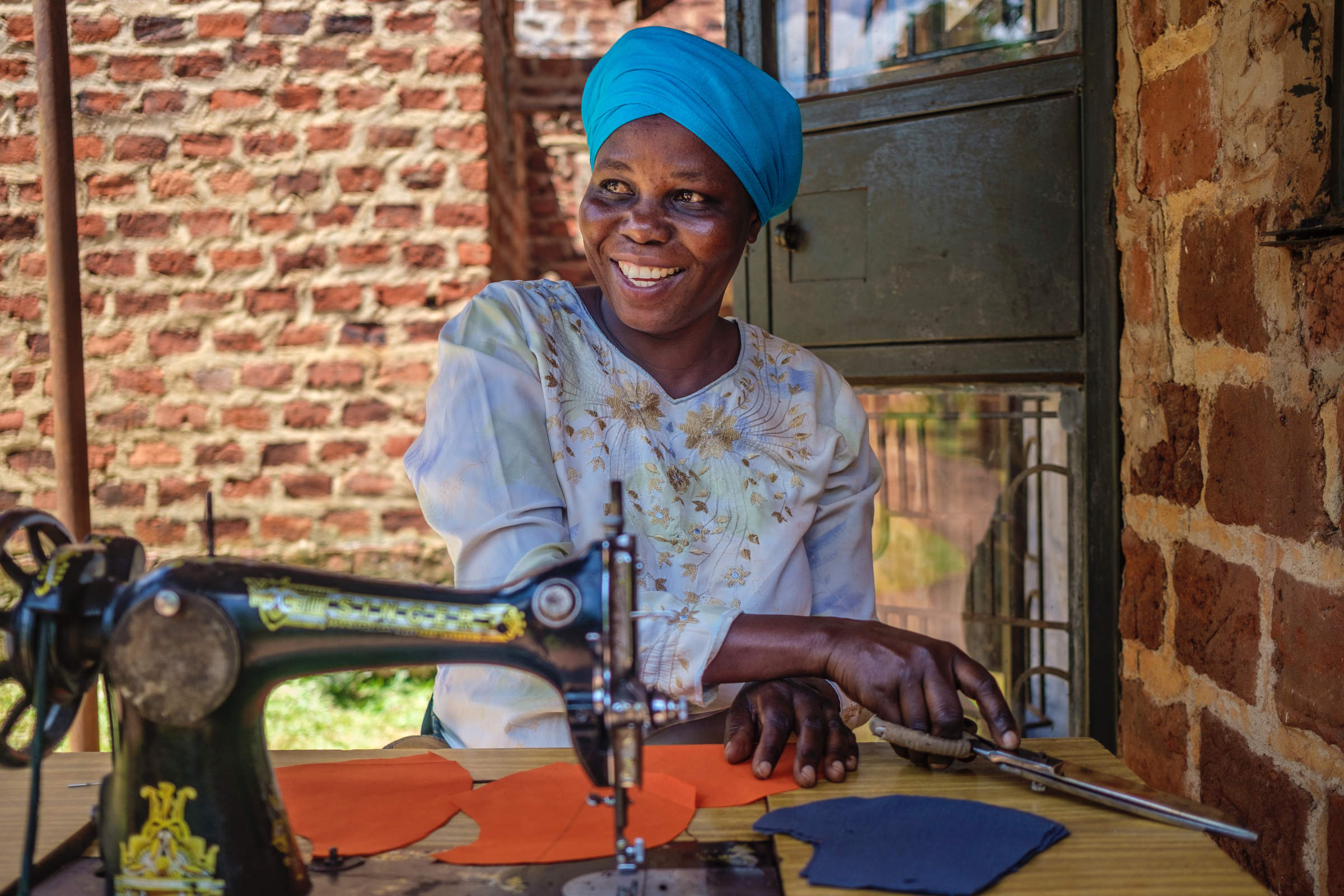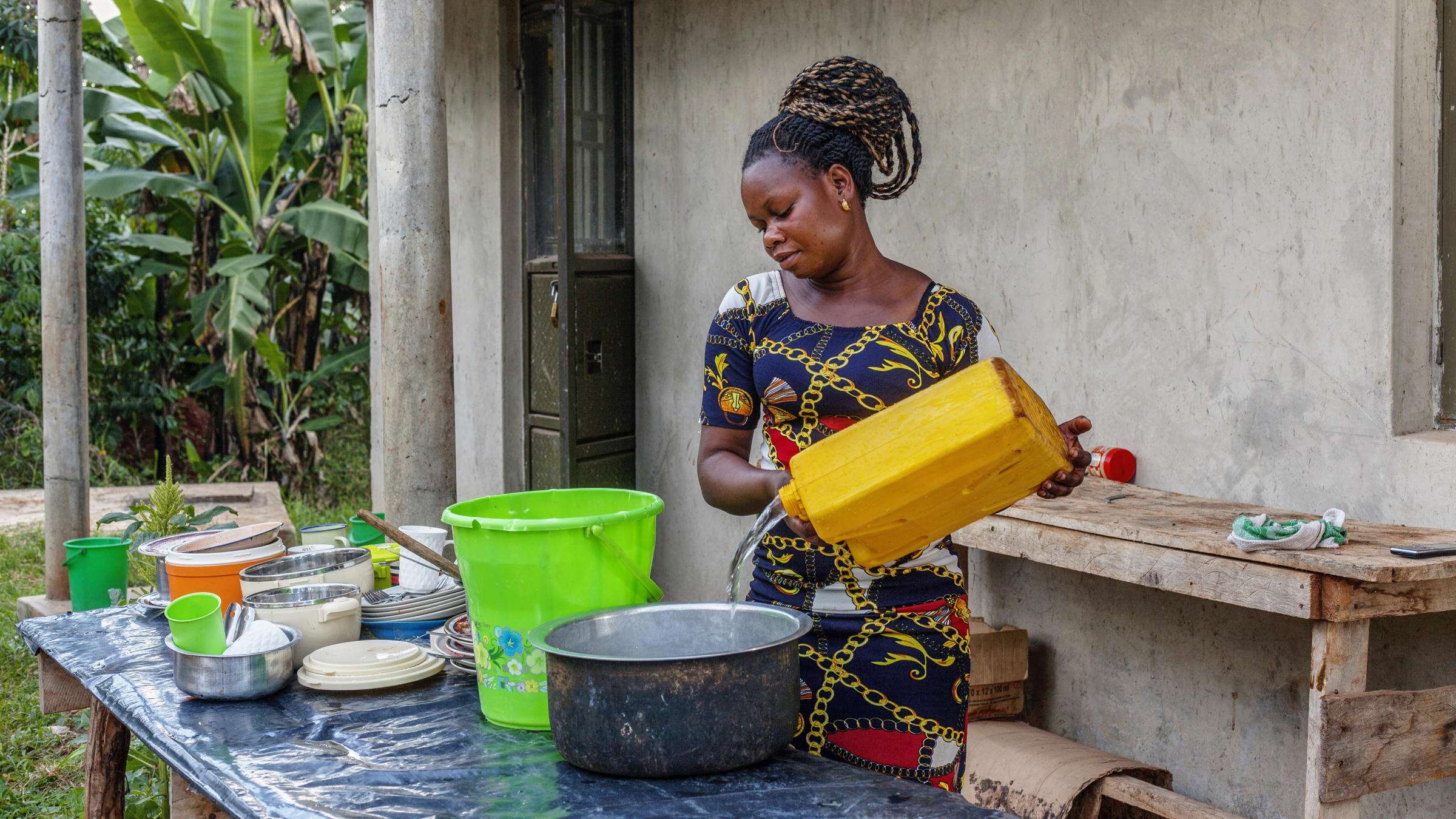
The people in the eleven fishing communities of our project area live from fishing and processing. Their incomes are low and the infrastructure is defective. The already precarious situation has worsened further due to the Corona crisis. Schools have been closed, curfews have been imposed, cab rides - the only public transport service - have been banned. At the same time, misinformation about the infectious disease was circulating.
Magret Nakato, KWDT, über die Arbeit mit den Frauenselbsthilfegruppen
Helfen Sie jetzt mit Ihrer Weihnachtsspende
With your donation you enable WASH projects and help the local people to a better quality of life.
arche noVa continues help with WASH
"If we want to help people in the long term, we must spread knowledge and lay the foundations for good living conditions. This is why we are focusing on WASH," explains Juliet Muthiani from the arche noVa regional office in East Africa. Water, sanitation and hygiene are the basis for health, income opportunities and dignity in everyday life. Since 2012, arche noVa and its local partner organization KWDT (Katosi Women Development Trust) have been supporting local women's self-help groups in expanding WASH supply. Several wells and sanitary facilities have already been built. More are to follow. At least as important are the activities "around" it: Founding and training of water and toilet user committees, maintenance and operation of the facilities built, and hygiene campaigns
Corona prevention is a hygiene issue
To bring important information about Covid-19 to the remote villages, you have to take the road. Sara Nafula informs about rules of distance, everyday masks and washing hands.
Covid-19 Aufklärungskampagne mit Sara Nafula
One bathroom for everyone in the village
Dignity in everyday life means not least that you can wash yourself and not be observed. "I used to have to clear all my things out of the house when I wanted to wash myself. Everything that remained inside got wet. Even the floor. The whole house became muddy and slippery," reports Sarah Nanjobe from Kiziru. The 47-year-old mother of three children is the chairperson of the women's self-help group in her village. She has been working to create a bathroom for everyone in the village. The construction was made possible by our project. The local committees will continue to be supported to ensure the operation, cleaning and maintenance of the buildings.
Women take over important jobs at wells and toilets
Margaret Nakafu knows how to repair hand pumps. That is why the people in the project region call her an engineer. She belongs to the group of 27 women and nine men who took part in the training course in hand pump mechanics that KWDT organized with arche noVa. All received work clothes, helmet and tools. Their commitment is an important contribution to the preservation of already existing water systems and thus to the water supply of a total of 170,000 people in the district of Mukono. Just as important, even if filled with taboos, is the topic of preserving sanitary facilities. Atimango Zabib is committed to this. Together with two colleagues she is responsible for emptying the septic tanks. What in the past had to be done by the villagers with shovel and bucket and therefore remained lying in many villages, the women's team can now do with a septic tank vehicle. The women are proud that they have taken on a job that many do not believe they are capable of. In the meantime, their competence is recognized and people are happy that an important problem has been solved.
Waste management, soap production and mask sewing
"Please keep the environment clean" is written on the trash cans in Kiziru. The women's groups urge everyone to keep their own village clean. The connection between hygiene and health care is discussed and acted upon on many levels within the project. The production of liquid soap and the sewing of everyday masks are also part of the project.

